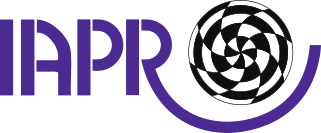The King-Sun Fu Prize is given to a living person in recognition of an outstanding technical contribution to the field of pattern recognition. It honors the memory of Professor King-Sun Fu who was instrumental in the founding of IAPR, served as its first president, and is widely recognized for his extensive contributions to the field of pattern recognition.
Call for Nominations for the 2026 King-Sun Fu Prize
Deadline: January 31, 2026
The deadline for receiving nominations has been extended to February 15, 2026. Endorsements for each nomination must be received by February 27, 2026.
A copy of the completed form is emailed to the person submitting it, the chair of the committee, the secretariat, and the webmaster (for redundancy and troubleshooting purposes). Revised submissions are accepted up until the final deadline. To make changes, resubmit the form with the new information. Only the most recent submission will be used to evaluate the nominee.
The International Association for Pattern Recognition (IAPR) is pleased to announce the call for nominations for the King-Sun Fu Prize, given in honor of the memory of Professor King-Sun Fu, who was instrumental in the founding of IAPR, served as its first president, and is widely recognized for his extensive contributions to the field of pattern recognition.
This biennial prize is given to a living person in recognition of an outstanding technical contribution to the field of pattern recognition. The 2026 prize will be presented at the
28th International Conference on Pattern Recognition (ICPR 2026)
Lyon, France
August 17-22, 2026
The prize recipient is expected to present an invited talk at the conference and to provide a contribution to the special issue of Pattern Recognition Letters that will include extended versions of all papers that received an IAPR award at the most recent ICPR.
The nomination must be made by a member of a national member society of IAPR and by endorsement of at least five members, representing at least two member societies different from that of the nominator. The prize recipient shall be selected by the K. S. Fu Prize Committee, subject to approval by the IAPR Governing Board. Members of the IAPR Executive Committee, as well as of the K. S. Fu Prize Committee, shall be ineligible for the prize and may not serve as nominators or endorsers.
Links to the nomination and endorsement forms can be found below. Only complete applications will be considered for the 2026 King-Sun Fu Prize.
Linda O’Gorman, Executive IAPR Secretariat
exec-secretariat@iapr.org
King-Sun Fu Prize Nomination Form (Google Form)
King-Sun Fu Prize Endorsement Form (Google Form)
2024 Award Winner in Kolkata
Tin Kam Ho
For pioneering contributions to multi-classifier systems, random decision forests, and data complexity analysis.
2022 Award Winner in Montreal
Tieniu Tan
For pioneering and landmark contributions to biometrics with practical applications.
2020 Award Winner in Milan
Professor Ching Yee Suen
For pioneering research and exceptional contributions to handwriting recognition and document understanding in theory, practice, and education.
2018 Award Winner in Beijing
Matti Kalevi Pietikäinen
For fundamental contributions to texture analysis and facial image analysis.
2016 Award Winner in Cancun
Professor Robert Haralick
For contributions in image analysis including remote sensing, texture analysis, mathematical morphology, consistent labeling, and system performance evaluation.
2014 Award Winner in Stockholm
Professor Jitendra Malik
For contributions to fundamental algorithms and their theoretical underpinnings in computer vision.
2012 Award Winner in Tsukuba
Professor Rama Chellappa
For pioneering contributions to statistical methods for image- and video-based object recognition.
2010 Award Winner in Istanbul
Professor Horst Bunke
For pioneering work on syntactic and structural pattern recognition.
2008 Award Winner in Tampa
Professor Anil K. Jain
2006 Award Winner in Hong Kong
Professor Josef Kittler
2004 Award Winner in Cambridge
Professor J. K. Aggarwal
For pioneering contributions towards establishing the fundamentals of structure and motion from image sequences and their applications to robot vision and human motion.
2002 Award Winner in Quebec City
Professor Thomas S. Huang
For pioneering contributions to 3D motion and structure estimation from 2D image sequences.
2000 Award Winner in Barcelona
Professor Theo Pavlidis
For mathematically rigorous algorithms and software engineering principles that have prove fundamental to many pattern recognition and image processing domains, including segmentation, picture editing, document processing, and bar-code technology.
1998 Award Winner in Brisbane
Professor Jean-Claude Simon
For his contributions to the automated recognition of handwritten words and his life-long leadership in pattern recognition.
1996 Award Winner in Vienna
Professor Teuvo Kohonen
1994 Award Winner in Jerusalem
Professor Herbert Freeman
1992 Award Winner in The Hague
Professor Leveen Kanal
For his fundamental contributions to Markov random field models, heuristic search strategies, hybrid linguistic-statistical models, and reasoning in uncertain domains.
1990 Award Winner in Atlantic City
Professor R.L. Kashyap
1988 Award Winner in Rome
Professor Azriel Rosenfeld
